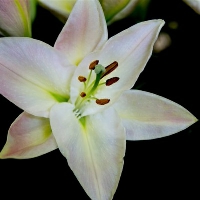Is Zhaoqing's undergraduate degree the first degree? In this age of big data, education is no longer optional. We need better work and many opportunities. Education is a barrier that we must overcome!
Is Zhaoqing's undergraduate degree the first degree?
The first educational background refers to the educational background of general full-time education in the national education series, which is the highest educational background of full-time ordinary colleges and universities.
It can be seen from this that a bachelor's degree is the second degree. So, because it belongs to the second degree, it is useless? Of course not. What is its role?
Although the bachelor's degree is the second degree, it is also recognized by the state and can be found on Xuexin. Therefore, it will not affect a series of learning plans such as postgraduate entrance examination and overseas study, and students can apply for the exam with confidence.
Purpose of adult college entrance examination graduation certificate:
1. Employment: Many units (especially state organs and public institutions) require a bachelor's degree or above for recruitment, and many ideal job opportunities will be lost due to educational background.
2. Salary treatment: At present, the state organs and public institutions in our country basically set the salary according to the education background. The salary of undergraduate is one grade higher than that of junior college. The salary of more standardized enterprises is also based on the education background. Moreover, there are relatively more bonuses and promotion opportunities above the undergraduate level than that of junior college.
3. Personnel reform: The basic conditions for many units (especially state organs and institutions) to promote cadres and run for leadership are bachelor's degree or above. Even if they are fully qualified, they do not have the qualification to run for office. Even if they find a job below the junior college level, they may face the risk of being laid off and unemployed in future work.
4. Professional title evaluation: nowadays, almost all kinds of professional title evaluation are linked to educational background, and there is basically no opportunity below the junior college level when evaluating senior professional titles. Nowadays, the leaders in charge of many units are almost held by people with senior professional titles. Without senior professional titles, many opportunities to be leaders in charge will be lost, while without undergraduate degrees, opportunities to evaluate senior professional titles will be lost.
5. Examining civil servants: civil servants have stable work, higher salary and less pressure. Now most civil servants are required to have a bachelor's degree or above to be eligible for the examination. Usually, only grass-roots and hard jobs are reserved for junior college students.
6. Postgraduate Entrance Examination: With a bachelor's degree, you can directly apply for the national unified postgraduate entrance examination without a degree certificate, while junior college students can only apply for the postgraduate entrance examination with the same academic level after two years of junior college graduation.
7. Textual research: Many national professional qualification certificates require a bachelor's degree or above. For example, the conditions for applying for the judicial examination of notaries, lawyers, judges and prosecutors must be a bachelor's degree or above.
8. Studying abroad: Many countries now recognize our undergraduate education. With a bachelor's degree, you can directly study a higher level of education abroad, which will save a lot of time and expense.

